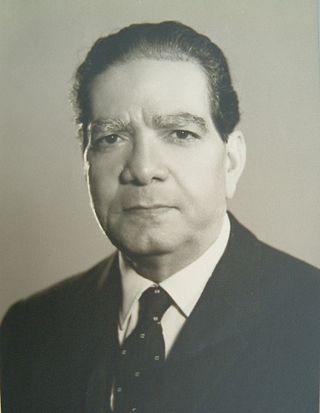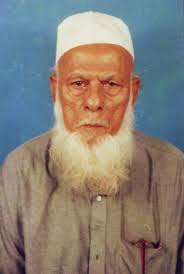Related Research Articles

Zakat is one of the five pillars of Islam. Zakat is a form of almsgiving, often collected by the Muslim Ummah. It is considered in Islam as a religious obligation, and by Quranic ranking, is next after prayer (salat) in importance. Eight heads of zakat are mentioned in the Quran.

Zionism is an ethnic or ethno-cultural nationalist movement that emerged in Europe in the late 19th century and aimed for the establishment of a Jewish state through the colonization of a land outside of Europe, with an eventual focus on the establishment of a Jewish homeland in Mandatory Palestine, a region corresponding to the Land of Israel in Jewish tradition, and an area of central importance in Jewish history and religion. Following the establishment of the State of Israel in 1948, Zionism became the ideology supporting the protection and development of Israel as a Jewish state, in particular, a state with a Jewish demographic majority, and has been described as Israel's national or state ideology.

The Bangladesh Awami League, often simply called the Awami League or AL, is one of the major political parties in Bangladesh. The oldest existing political party in the country, Awami League successfully lead Bangladesh to the independence. One of the two most dominant parties in the country, along with its archrival Bangladesh Nationalist Party, it has been the ruling party since 2009, and has since been described as authoritarian.

Pan-Islamism is a political movement which advocates the unity of Muslims under one Islamic country or state – often a caliphate – or an international organization with Islamic principles. Historically, after Ottomanism, which aimed at the unity of all Ottoman citizens, Pan-Islamism was promoted in the Ottoman Empire during the last quarter of 19th century by Sultan Abdul Hamid II for the purpose to prevent secession movements of the Muslim peoples in the empire.
Shahid Javed Burki is a Pakistani-American professional economist who has served as Vice President of the World Bank and as de facto Finance Minister of Pakistan on a caretaker basis. He has written extensively on economic development and on the political history of Pakistan.

The Bengali language movement was a political movement in former East Bengal in 1952 advocating the recognition of the Bengali language as a co-lingua franca of the then-Dominion of Pakistan to allow its use in government affairs, the continuation of its use as a medium of education, its use in media, currency and stamps, and to maintain its writing in the Bengali script.

Rehman Sobhan is a Bangladeshi economist. Regarded as one of the country's top public thinkers, he is the founder of the Centre for Policy Dialogue. Sobhan is an icon of the Bangladeshi independence movement due to his role as a spokesman of the Provisional Government of Bangladesh in the United States during the Bangladesh Liberation War. He was awarded the Independence Day Award, Bangladesh's highest civilian honour, in 2008.
Shaker Al Nabulsi was an American author and columnist of Jordanian descent.
Muslim supporters of Israel refers to both Muslims and cultural Muslims who support the right to self-determination of the Jewish people and the likewise existence of a Jewish homeland in the Southern Levant, traditionally known as the Land of Israel and corresponding to the modern polity known as the State of Israel. Muslim supporters of the Israeli state are widely considered to be a rare phenomenon in light of the ongoing Israeli–Palestinian conflict and the larger Arab–Israeli conflict. Within the Muslim world, the legitimacy of the State of Israel has been challenged since its inception, and support for Israel's right to exist is a minority orientation. Pro-Israel Muslims have faced opposition from both moderate Muslims and Islamists.
This is an incomplete bibliography of the Arab–Israeli conflict.

Abul Maal Abdul Muhith was a Bangladeshi economist, writer, civil servant, secretary, diplomat and politician. He served as the finance minister of the government of Bangladesh from January 2009 until January 2019.

Air Commodore Muhammad Mahmood AlamSJ & Bar SI(M), popularly known as M. M. Alam, was a Pakistani fighter pilot and war hero, officially credited by the Pakistan Air Force with having downed five Indian fighter aircraft in under a minute and establishing a world record during the 1965 Indo-Pakistani War.
Hossein Askari (economist) is a scholar of economic development in the Middle East and in Islam and the founder of Islamicity Indices, a benchmark to build effective institutions for political, social and economic reform and progress.

Abbas Aram (1906–1985) was an Iranian diplomat and served as foreign minister for two terms between 1959 and 1960 and between 1962 and 1966. In addition, he was the ambassador of Iran to various countries, including Iraq, the United Kingdom and China.
Mohammad Sajjad "Saj" Alam was a Bengali Pakistani and a naturalized American particle physicist. His work focused on particle physics and computational physics. He played a significant role in several major particle physics experiments that led to new discoveries in the area of high-energy particle physics.

IPDC Finance Limited is a private sector financial institution of the country. This is a public limited company and listed in both Dhaka Stock Exchange and Chittagong Stock Exchange. Established in 1981, IPDC is the first private sector financial institution of the country. The company's products and services ranges from corporate finance and advisory services in corporate sector, middle market supply chain finance in SME sector to retail wealth management and retail finances in retail sector. The company is headquartered in Dhaka and has operations in Chittagong, Sylhet, Gazipur, Narayanganj, Bogra, Jessore, Mymensingh, Uttara, Dhanmondi and Motijheel.

Dhakaiya Urdu, sometimes unofficially and mythically concocted referred to as Sobbasi Language or Khosbasi Language, is a distinct Bengalinized dialect of Urdu that is native to Old Dhaka beside Dhakaiya Kutti a dialect of Bangla, in Dhaka, Bangladesh. It is being spoken by the city's Sobbas community, Khusbas community, Nawab Family, other native communities such as Shia community and aristocratic families. Sobbasi / Khosbasi is not the name of any language but the adjective and identifies some communities as referred by Hakim Habibur Rahman in Dhaka Pachas Baras Pahle. The usage of this language is gradually declining due to negative perceptions following it being forced upon the people of erstwhile East Bengal. However, at present, with the patronage and sole efforts of the cultural and social activists of the Dhakaiya Urdu language group, Dhakaiya Urdu is rapidly blossoming and expanding again.Today, Dhakaiya Urdu is one of the two dialects of Urdu spoken in Bangladesh; the other one being the Urdu spoken by the Biharis and Stranded Pakistanis in Bangladesh.
Masudul Alam Choudhury is a Bangladeshi-Canadian economist and International Chair in Islamic Economics and Finance at the Faculty of Economics, Trisakti University in Jakarta, Indonesia.

Ashraf Ali Bishwanathi (1928–2005) was a Bangladeshi Deobandi Islamic scholar, educator, politician and religious writer. He was called "Baba-e Jamiat" in order to lay the foundation of Jamiat Ulema-e-Islam Bangladesh in East Pakistan and present day Bangladesh. He was also the president of the party for 2001 to 2005. He was also the founder of Jamia Islamia Darul Uloom Madania Bishwanath, Madania Qawmia Mahila Madrasa and the literary magazine Monthly Al Farooq.
References
- ↑ Institute for Policy Research & Development, Advisory Board
- 1 2 Cihan Aksan, State of Nature, On Islam: An Interview with M. Shahid Alam
- ↑ Institute for Policy Research & Development, Dr. M. Shahid Alam
- ↑ "People Power in the Middle East". Foreign Policy Journal. January 28, 2011.